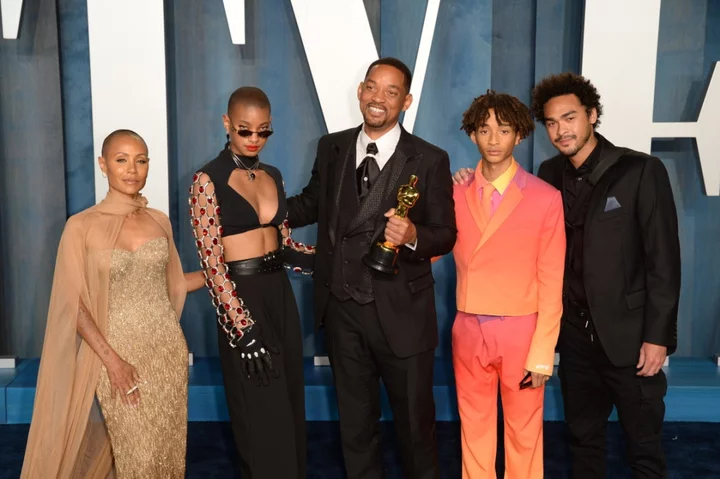Each year, roughly 32 million Americans open their mail to find that they’re being summoned to court—not to be tried or litigated against, but to serve on a jury panel. For days, weeks, or even months at a time, community members attend trials and are charged with coming to a consensus opinion about a civil or criminal matter.
It’s important work, but it’s also disruptive, which is why many people try to get out of it. For more on jury duty, including being excused, being sequestered, and the one time jurors can ignore the law, read on.
1. A lot of people simply don’t show up for jury duty.
While methods may vary somewhat depending on the various state and federal court protocols, jurors are often plucked from voter or Department of Motor Vehicles registrations at random, provided they’re at least 18 and an English-speaking citizen of the United States. That 32 million figure is based on a 2007 survey by the National Center for State Courts, one of the few instances in which statistical information about jury service has ever been compiled. (In federal court, roughly 194,000 people were called for duty in 2016.)
But sending a notice is no guarantee a person will show. According to that same NCSC survey, barely a quarter of those potential jurors appear. Some are excused, owing to medical or financial hardships, and a portion—roughly 3 million—just don’t come to court at all. And just being called for jury duty doesn't mean they will actually serve on a case: Only about 1.5 million people wind up sitting in the jury box.
Failing to appear for a jury summons can have consequences ranging from fines to jail time, depending on the temperament of the judge. One potential juror who failed to appear in Georgia in 2023 was tasked with writing a 30-page essay on why serving is important.
2. People use a lot of different methods for getting out of jury duty.
When a potential juror finds serving difficult owing to medical or financial issues, most courts will be lenient and might offer to postpone service or excuse it altogether if the person can prove those hardships (by getting a doctor’s note, for example). Age can also be a mitigating factor, if it can be demonstrated the task would be difficult, given the juror’s health. Those solely responsible for children might also be excused.
In other cases, a person’s occupation could be enough to pardon them. According to the Administrative Offices of the U.S. Courts, which oversees federal courts, active members of the armed forces or National Guard are exempt; so are professional members of fire or police departments; the same goes for elected officials. In fact, they’re barred, meaning they couldn’t serve on a federal jury even if they wished to.
Another group that’s exempt: convicted felons, who face exclusion from service in roughly half of all states and limitations in others. Jurors who also appear a little too enthusiastic to serve may be passed up by attorneys, because seeming very eager to serve can come off as a little suspicious.
3. The jury selection process can involve social media.
Attorneys want to seat a jury that they feel stands the best chance of being impartial and ideally a little favorable toward their respective arguments. That selection process is known as voir dire (Latin for “to speak the truth”), in which the lawyers try to tease out any potential prejudices before agreeing on the panel. They also have a set number of peremptory challenges to try and replace jurors they feel could be unsympathetic to their case, even if there’s no obvious cause, like being a relative to someone involved.
But attorneys also look at nonverbal cues—like potential jurors who hesitate in answering or body posture—to help them determine who might be a good fit. Law firms may also try to vet jurors based on their internet profiles, including social media posts. The American Bar Association dubbed it “Voir Google,” and it comes with some measure of risk. One sitting juror in a 2013 New York trial told the judge that a defense team member had visited his LinkedIn profile.
4. Employers aren’t necessarily required to pay employees for jury duty.
The intersection between civic duty and earning a living can be complicated. There is no federal law requiring employers to pay employees for their time spent on a jury, though a number of states (Alabama, Colorado, and Florida among them) require at least a minimum daily payment. In New York, for example, jurors are paid $40 a day for three days, with the state “encouraging” (but not requiring) employers to pay their full wage [PDF]. Other states prohibit employers from forcing people to take paid time off to serve. There’s at least one constant: no state allows an employer to threaten someone with termination for serving on a jury.
5. A jury can ask questions.
Typically, it’s the attorneys in a case that do the asking. Jurors are expected to remain silent and attentive—but they do sometimes have ways to pose a question. While protocol varies by state, sometimes jurors can submit written queries to a judge, who will then consult with counsel on both sides. If there are no objections, the question can be brought up.
But not all legal minds endorse the practice. Some lawyers believe that allowing jurors to ask questions can slow down a trial; others argue that submitting a question that isn't asked might prompt the juror to infer the answer is incriminating, even if that isn’t the case.
6. Sequestering a jury is tough.
Owing to its expense—in the hundreds of thousands or even millions—a judge typically won’t opt to sequester a jury, which effectively bars them from the world at large during the duration of a trial, in the hopes of keeping them impartial. It’s typically reserved for high-profile defendants like O.J. Simpson or John Gotti (the mob boss wasn’t convicted of federal charges until he faced a sequestered jury in 1992). But if a jury is sequestered, they may not be allowed to converse with one another, use their phones, or even head to the bathroom without a security guard in tow.
Sequestration wasn’t always a means of last resort: New York had a law on the books until 2001 that required jurors to retire to hotel rooms if a criminal trial lasted over a day.
7. Jurors may get counseling.
If a trial has been particularly challenging psychologically owing to traumatic testimony, a court may offer post-trial therapy for jurors. In federal court, it’s offered via the Federal Occupational Health Employee Assistance Program. Jurors in the trial of mass shooter Dylann Roof were given this resource.
8. Jurors may not need to come to a unanimous decision.
According to the American Bar Association, both the size of a jury and the unanimity required can vary by case type and by state. While serious criminal cases generally need 12 jurors, misdemeanors or civil cases can have as few as six people—and they may also be able to arrive at a verdict with majority consensus, with three-fourths of jurors needing to be in agreement.
9. Jurors can deliberate indefinitely.
There’s no set time a jury has to reach a decision, though at some point a judge may declare them deadlocked. (See below.) Otherwise, a jury may take whatever time it needs to reach a verdict. Among the longest was a 2004 case in which a woman looking to build residential homes for Alzheimer’s patients went to court against city officials in Long Beach, California, whom she alleged were blocking those attempts, dating all the way back to 1990. The federal jury took over four months to render a decision in favor of the plaintiff for $22.5 million.
10. Jurors can ignore the law—kind of.
There are only so many possible outcomes for a jury trial in a criminal case. A defendant may be found guilty or not guilty on one or more charges; a deadlocked jury unable to reach a unanimous decision may result in a mistrial, with the defendant still at risk of prosecution. Less common is jury nullification, in which jurors might believe the evidence against a defendant but refuse to convict on the premise the law or laws broken are unjust. A juror may, for example, find a person guilty of violating a drug law, but one that seems outdated or racially biased.
There’s no law requiring a judge to inform a jury that nullification exists, however, and there may be legal trouble awaiting civilians who try to do so on the basis it could be considered tampering and might potentially influence a verdict [PDF]. Owing to a general lack of consensus over its legal merit, nullification is a rare outcome.
This article was originally published on www.mentalfloss.com as Peer Pressure: 10 Facts About Jury Duty.









